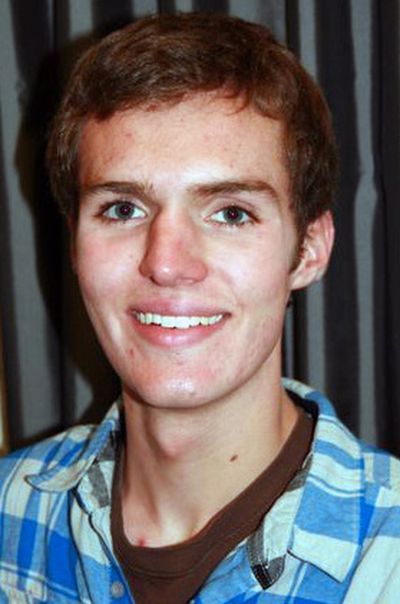Suit filed in Gonzaga student’s kayaking death
Outing violated parks department rules, claim says

A city parks instructor manual appears to ban city-sponsored kayak trips in the kind of weather that led to a chaotic and deadly excursion organized by Gonzaga University and sponsored by the Spokane parks department, according to a lawsuit filed Monday.
Christopher Gormley, 18, died from hypothermia after his kayak tipped in the frigid waters of Rock Lake during the trip on April 1. He was one of seven people on the trip organized by Gonzaga Outdoors, which contracted with the city parks department to provide the equipment and guide for the trip. Gormley, a freshman honors student, was majoring in political science and was a recent graduate of Henry M. Jackson High School in Everett.
Among those named in the wrongful death lawsuit filed by Gormley’s mother, Susan Gormley, are the city of Spokane, Gonzaga University and Brandon LeBaron, the temporary seasonal parks employee who was the guide for the trip.
The lawsuit says a manual for Spokane Parks and Recreation Department instructors directs instructors that trips are not allowed “where the wind exceeds 13-18 mph.”
The National Weather Service had issued a wind advisory at 3:37 a.m. that day for the Palouse effective from 8 a.m. to 5 p.m. The advisory warned of sustained southwest winds of 25 to 30 mph with gusts of up to 50 mph. The strongest winds were expected between 11 a.m. and 3 p.m.
The kayak group launched at about 10:30 a.m.
City spokeswoman Marlene Feist said Monday that the city had not yet received a copy of the lawsuit and that City Attorney Nancy Isserlis would not comment.
LeBaron and Gonzaga spokeswoman Mary Joan Hahn could not be reached. An officer for the Gonzaga Student Body Association, which is also named in the lawsuit, declined to comment.
LeBaron, 23, remains a temporary seasonal employee for the parks department and teaches cross-country skiing and snowshoeing classes, Feist said.
Susan Gormley filed a $5 million claim with the city in October. Seattle attorney Lee Corkrum, who is representing the Gormleys, confirmed the suit had been filed but directed questions about the suit to documents filed in Spokane County Superior Court.
Although all the participants were wearing life jackets, only LeBaron was wearing a wetsuit even though the water temperature was about 40 degrees and the air was about 35 degrees, according to the Whitman County Sheriff’s Office incident report.
The lawsuit points to recommendations from the American Canoe Association that say that a “wetsuit is a must” when paddling in water less than 60 degrees or when the air and water temperatures add up to less than 120 degrees.
Gonzaga student guides on the trip had cellphones and a Satellite Personal Tracker, a device that allows people to communicate with emergency services even when out of cellphone reach, in their possession, the lawsuit says. But the suit claims they were “inoperable or could not be used.”
“Valuable time was lost while the student guides paddled to the west shore of Rock Lake and ran up the beach to locate a landline,” the suit says.
The lawsuit says that Gonzaga officials agreed to cooperate and to explain why the satellite tracking device was not used to call for help. But that information has not been provided, according to the lawsuit.
About 30 minutes after launch, all three single-seat kayaks capsized in the rough water. Four women in two-person kayaks did not tip and paddled back to shore.
Tucker Brinkman, the first to capsize, told deputies he became concerned about the wind and paddled for shore but tipped. While LeBaron was assisting Brinkman, Gormley’s kayak also tipped. LeBaron capsized when trying to help the other kayakers.
Brinkman, who was taken to Providence Sacred Heart Medical Center where he was treated and released, told investigators that he spent about 20 minutes in the water trying to get back into their kayaks before they decided to swim to shore. LeBaron reached shore first to try to get help. But Brinkman said Gormley soon stopped swimming.
The Sheriff’s Office report shows a frightening scene: “Tucker said he asked Christopher what he was doing and said he just kept yelling for help. He told me he was yelling at Christopher to keep swimming, but he would not move. Tucker told me he tried to grab Christopher and pull him with him as he swam, but said he was not able to pull him. Tucker told me the waves were crashing over their heads while they were swimming, and said he swallowed a lot of water,” wrote Brian Keller, of the Whitman County Sheriff’s Office. “Tucker told me he decided to swim to shore to get a kayak. He told me he was to going to get a kayak and take it back out to Christopher. Tucker said when he reached the shore, he was so cold he could not move.”